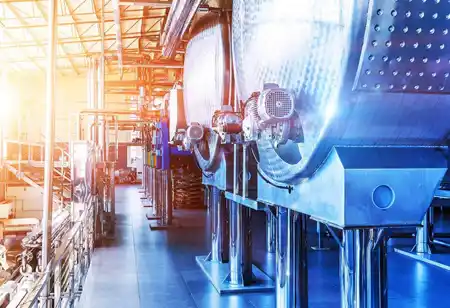Chemical tech is revolutionizing the chemical industry, reshaping processes, driving sustainability, and fostering innovation.
FREMONT, CA: The chemical industry is experiencing a profound transformation driven by advancements in chemical technology. Cutting-edge technologies are revolutionizing manufacturing processes, improving efficiency, enhancing sustainability, and enabling the development of new materials and solutions. This article explores the significant impact of chemical tech on the industry, highlighting key innovations and their implications for the future of the chemical sector.
Automation and Robotics
Automation and robotics have emerged as game-changers in the chemical industry. Intelligent robotic systems replace manual labor in hazardous or repetitive tasks, ensuring higher accuracy, precision, and safety. Robotic process automation (RPA) streamlines operations, such as mixing, packaging, and quality control, increasing productivity and reducing human error. Additionally, autonomous vehicles and drones are used for material handling, inventory management, and inspection processes, enhancing operational efficiency and reducing costs.
Data Analytics and Artificial Intelligence
Data analytics and artificial intelligence (AI) are transforming the chemical industry by enabling companies to harness the power of big data. Advanced analytics algorithms identify patterns, detect anomalies, and provide actionable insights for optimizing manufacturing processes and supply chain management. AI-powered predictive modeling helps forecast demand, optimize production schedules, and improve resource allocation. Real-time monitoring and predictive maintenance using IoT sensors and AI algorithms prevent equipment failures, minimize downtime, and enhance operational efficiency.
Green and Sustainable Solutions
Chemical tech is driving sustainability initiatives within the industry, promoting the development of green and sustainable solutions. Renewable energy sources are harnessed to power chemical manufacturing processes, reducing reliance on fossil fuels and decreasing carbon emissions. Green chemistry practices aim to minimize the environmental impact by using safer and more sustainable chemical processes and materials. Furthermore, innovative recycling technologies transform waste streams into valuable resources, contributing to the circular economy.
Nanotechnology and Materials Science
Nanotechnology and materials science are at the forefront of chemical tech innovations. Nanomaterials with unique properties and functionalities are revolutionizing various industries, from electronics and healthcare to energy and construction. These advanced materials offer enhanced strength, increased conductivity, and improved durability. Nanotechnology enables precise control at the molecular level, allowing for the development of novel materials with tailored characteristics, such as self-healing coatings, lightweight composites, and efficient catalysts.
Biotechnology and Bioengineering
The convergence of chemical and biological sciences has led to remarkable breakthroughs in biotechnology and bioengineering. Industrial biotechnology harnesses the power of enzymes, microorganisms, and biocatalysts to develop environmentally friendly processes for chemical production. It offers sustainable alternatives to traditional manufacturing methods, reducing reliance on petrochemicals and minimizing waste. Bioplastics, biofuels, and bio-based chemicals are gaining prominence, offering renewable and biodegradable solutions for various applications.
Digitalization and Connectivity
Digitalization and connectivity drive the chemical industry's efficiency, collaboration, and innovation. Cloud computing enables seamless data sharing and analysis, facilitating collaboration and knowledge sharing among stakeholders. Digital twins, virtual replicas of physical assets and processes, allow for real-time simulations, optimization, and predictive modeling. Supply chain platforms integrate suppliers, manufacturers, and customers, enhancing visibility, traceability, and responsiveness. These digital advancements empower the chemical industry to adapt quickly to changing market dynamics and customer demands.
Conclusion
Chemical tech is revolutionizing the chemical industry, reshaping processes, driving sustainability, and fostering innovation. Automation, data analytics, AI, and robotics enhance efficiency, improve productivity, and ensure safety. Green and sustainable solutions contribute to environmental stewardship and the circular economy. Nanotechnology and materials science enable the development of advanced materials with unprecedented properties. Biotechnology and bioengineering offer sustainable alternatives to traditional chemical processes. Digitalization and connectivity promote collaboration and agility. Embracing chemical tech is vital for companies to remain competitive, address global challenges, and unlock new opportunities in the ever-evolving chemical industry. By embracing these technological advancements, the chemical industry can continue to drive economic growth while contributing to a sustainable and prosperous future.

